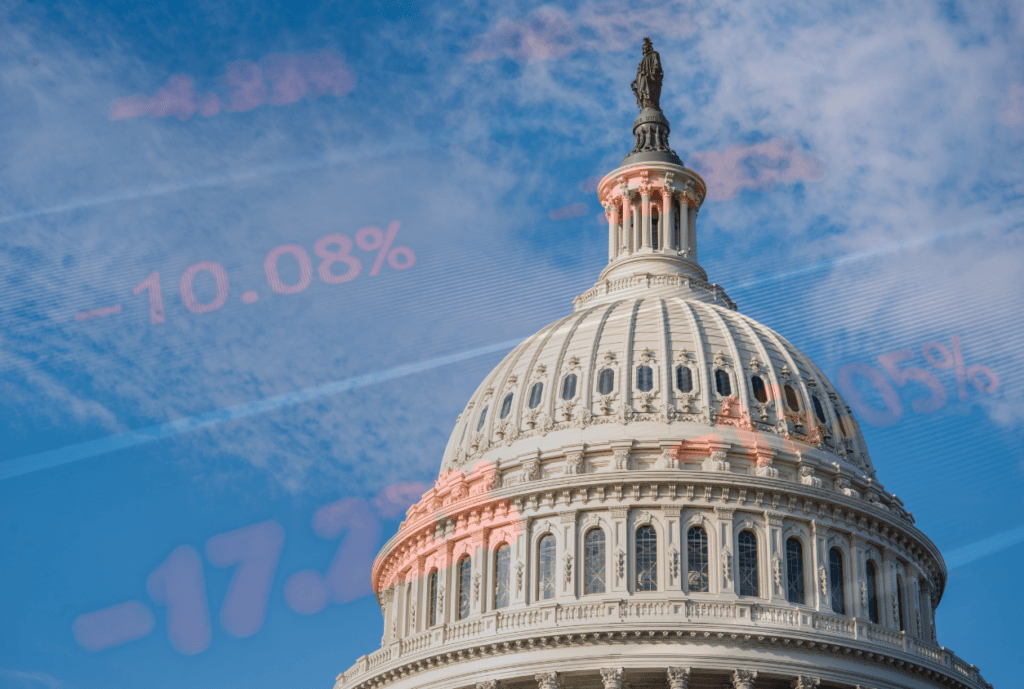The Coalition for a Prosperous America (CPA) today applauded a new bill by Rep. Jim Banks (R-IN-03) that would ban private pension plans from investing in the stocks and bonds of countries deemed adversarial by Washington. If passed, the Employee Retirement Income Security Act of 1974 (ERISA), a federal law that sets minimum standards for most voluntarily established retirement plans in private industry, would be instructed to ban private retirement funds from investing in Chinese stocks, for example.
The Protecting Americans’ Retirement Savings Act (PARSA), introduced on June 12, blocks private pension plans under ERISA from making new investments in companies controlled by or based in foreign adversarial nations which is defined to include Iran, North Korea, China, and Russia. However, the bill also requires the disclosure of existing investments in those adversarial in existing funds.
The bill would impact 401(k) plans, employer-provided pensions, deferred compensation plans, and profit-sharing plans.
‘In the end, bills like this are all about fiduciary responsibility. If your retirement fund is heavily invested in China, it faces high political risks. Look at all the money that got wiped out when Russian stocks were banned here. This is a real possibility with investing in China given the ongoing political tensions and a desire on behalf of leaders on Capitol Hill to stop funding America’s biggest adversary with American retirement money,” Robby Saunders, CPA Vice President for National Security said. “If we want to avoid a war with China, we have to stop providing our retirement accounts as investment capital for their military-civil fusion companies.”
The PARSA Act is co-sponsored by Rep. John Moolenaar (R-MI-02), Rep. Rob Wittman (R-VA-01), and Rep. Mike Gallagher (R-WI-08). Gallagher chairs the newly formed House Select Committee on the Chinese Communist Party.
This is the second bill in three weeks seeking to eliminate U.S. retirement money in China.
In May, a bipartisan group of Senators and Congressmen reintroduced the Taxpayers and Savers Protection (TSP) Act, which bans the Federal Retirement Thrift Investment Board (FRTIB) from steering federal employee retirement funds in the Thrift Savings Plan (TSP) — the largest retirement fund in the world with $720 billion in assets – into China securities.
U.S. government policies to restrict capital flows to China first began under the Trump Administration and have continued with President Biden. Export controls for tech companies selling to China, coupled with outright bans on owning the stocks of defense contractors have added to the geopolitical risk of investing there.
The Financial Times reported on June 12 that Wall Street firms were increasingly selling China securities due to risks, and venture capital giant Sequoia Capital split into two firms after coming under increased scrutiny for its ties to the CCP.
In May, Newsweek published an investigation that found that, “[m]illions of federal employees can invest in Chinese companies sanctioned by the U.S. government via its flagship retirement plan, even though these companies have been branded a danger to national security or are accused of profiting from forced labor or other human rights abuses.”
A recent CPA article on June 2 showed five companies that face export controls and other sanctions due to the Uyghur Forced Labor Prevention Act (UFLPA) are still held by large investment companies including BlackRock, Vanguard, and State Street.
“While all of these measures are meaningful, we know these investment firms and index providers will only do what they have to do to be compliant with the law — as they say time and again when they testify before Congress,” Saunders said. “Our job is to make sure these actions toward decoupling key sectors (or de-risking as our allies like to say) become the law through bipartisan cooperation and a united sense of urgency among policymakers. This has to happen sooner rather than later so American retirement money is protected from massive loss. And so that we have the maximum chance at deterrence — as well as at decreasing China’s hard power capabilities,” she said.
ERISA requires plans to provide participants with plan information including important information about plan features and funding; provides fiduciary responsibilities for those who manage and control plan assets; requires plans to establish a grievance and appeals process for participants to get benefits from their plans; and gives participants the right to sue for benefits and breaches of fiduciary duty.
Five China Companies Wall Street Still Funds Despite Being Blacklisted













